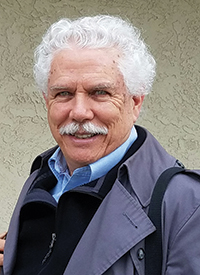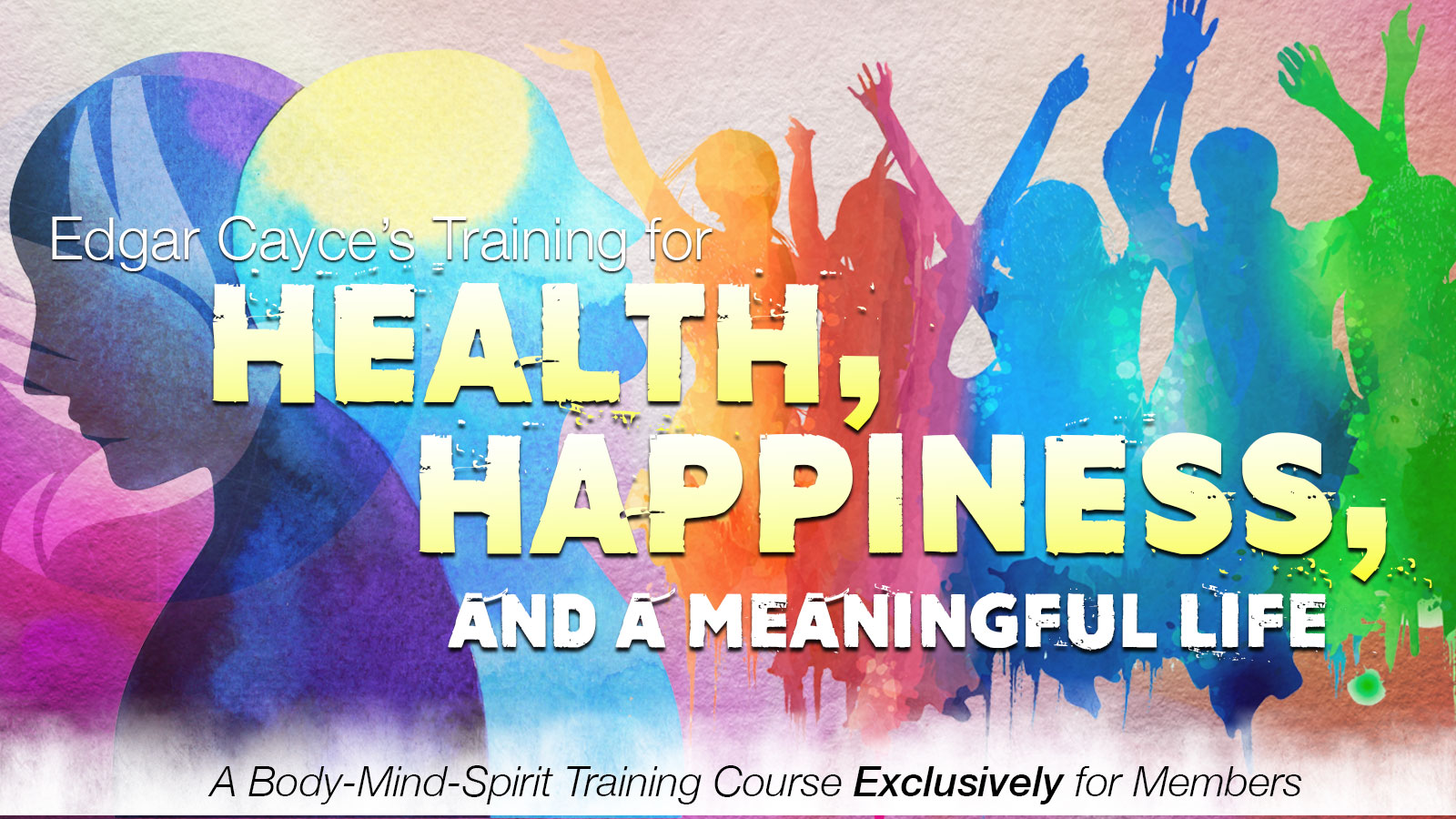This blog is part of our 2021 Enlightenment Courses, an exclusive benefit for members of Edgar Cayce's A.R.E. Each month John Van Auken provides a lesson with a worksheet, a video, a blog, and in each issue of the member magazine, Venture Inward, he writes an article about this topic. For 2021, the topic of study and practice is Enhancing, Our Minds, Intuition, and Dreams. Members can access all of the available material in the Member-only section of our website at EdgarCayce.org/members.
Intuition Research
- John Van Auken
This title is misleading because it is near impossible to empirically research intuition. There is no microscope or brain scanner that can detect a spontaneous insight. "While we can observe people’s behavior, even with the advances made in brain imaging, we cannot – yet – see the thought processes that go on behind the scenes." [Hogarth, R. M. (2010). "Intuition: A challenge for psychological research on decision making." Psychological Inquiry, 21(4), 338–353.]
Many researchers suggest that it is a dual process, meaning decision-making is a combination of intuitive and analytical activity. In Blink: The Power of Thinking Without Thinking, Malcolm Gladwell (2005) describes the dual process as "blinking," when intuition is used, and "thinking," when an analysis is involved. "Blinking" (or intuition) typically refers to the use of knowledge that is not explicit, as in a “hunch” or “women’s intuition.” When it happens, it’s hard to quantify or define, but it is obvious. For example: "I had a feeling there was something wrong; she just didn’t seem like herself." Hogarth wrote: “The essence of intuition or intuitive responses is that they are reached with little apparent effort, and typically without conscious awareness. They involve little or no conscious deliberation.” (Hogarth 2010) Seymour Epstein wrote: “Intuition involves a sense of knowing without knowing how one knows." [Epstein, S. (2010). "Demystifying Intuition: What it is, what it does, and how it does it." Psychological Inquiry, 21, 295-312.]
Why Intuition?
Intuition helps us by reducing our overall cognitive load, we don't have to consciously know everything all the time. We can respond instantly while having confidence in our knowledge and decision making – even though it may defy analysis (Hogarth, 2010).
There is a caution, such automatic thinking may be tainted by our upbringing, biases, prejudices, and even our experience with religion, culture, social, moral, and even political environments. A purer intuition may need some rational thinking to counter these tainted influences. Hogarth believed that “intuition can be explicitly educated.” With this in mind, overriding the influence of our upbringing, peer pressure, and education we can have more unbiased intuitive guidance. For example, Edgar Cayce taught us to establish and know our deepest ideals, what we hold dear and right in our hearts and minds, even when it goes against society's norms. Then, when a tainted insight comes, our ideals will keep us from acting on the prejudice because it's overridden by our higher ideals and purer intentions. Eventually, our intuition will reflect our ideals. In fact, in most cases, this already happens, but Cayce wanted us to be conscious of this influence.
Instinct vs Intuition
Researchers see a distinct difference between instinct and intuition. (Epstein 2010) Instinct is a direct response to stimuli, “largely inheritable and unalterable tendency of an organism to make a complex and specific response to environmental stimuli without involving reason.” (Merriam-Webster) Instinct is innate, inherited, and hardwired into our brain’s circuitry because of millions of years of evolution. If a large truck horn blows behind me, I jump and run for safety. My reaction is primal – instinctive – there is no thinking or intuitive perception involved: "I jump and run!"
Cosmic Consciousness
In Cosmic Consciousness, Richard Bucke wrote that he discerned three levels of consciousness: 1. Simple consciousness, possessed by both animals and humankind and includes instinct. 2. Self-consciousness, possessed by humankind, encompassing thought, reason, and imagination. 3. And cosmic consciousness which is "entirely immaterial, entirely spiritual and entirely alive." He goes on: "It shows that death is an absurdity, that everyone and everything has eternal life. It shows that the universe is God, and that God is the universe, and that no evil ever did or ever will enter into it." Cayce agrees, stating that all sins stem from selfishness. They are not an aspect of the universal creative forces. Bucke hypothesized that cosmic consciousness is slowly beginning to appear in humans and will eventually spread widely throughout humanity. [Cosmic Consciousness: A Study in the Evolution of the Human Mind by Richard Maurice Bucke, 1901]
We now have instinct ("simple consciousness"), analytical logic, intuitive knowing, and "cosmic consciousness" – Cayce referred to it as universal consciousness.
The member courses are in the Members Section of our website. Not a member? Join now at: EdgarCayce.org/membership Then, when you are at our Home Page you'll login as a member and access all of these lessons, videos, and much more.
Watch an invitation from John Van Auken and learn more about this year's Enlightenment Courses.







